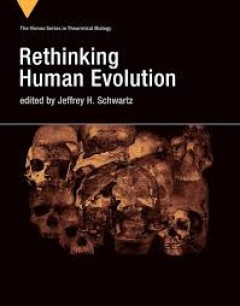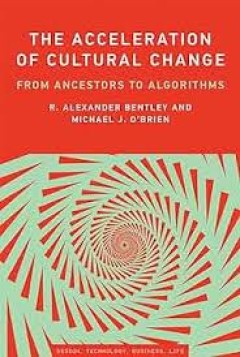Filter by

A natural history of rape :biological bases of sexual coercion
"In this sure-to-be-controversial book, Randy Thornhill and Craig Palmer use evolutionary biology to explain the causes of rape and to recommend new approaches to its prevention. According to Thornhill and Palmer, evolved adaptation of some sort gives rise to rape; the main evolutionary question is whether rape is an adaptation itself or a by-product of other adaptations." "The book includes a …
- Edition
- -
- ISBN/ISSN
- 0585082006
- Collation
- 1 online resource (xvi, 251 pages)
- Series Title
- -
- Call Number
- -

Cultural evolution : society, technology, language, and religion
Over the past few decades, a growing body of research has emerged from a variety of disciplines to highlight the importance of cultural evolution in understanding human behavior. Wider application of these insights, however, has been hampered by traditional disciplinary boundaries. To remedy this, in this volume leading researchers from theoretical biology, developmental and cognitive psycholog…
- Edition
- -
- ISBN/ISSN
- 9781461950356
- Collation
- 1 online resource (xi, 485 pages) :illustrations.
- Series Title
- -
- Call Number
- -

Rethinking Human Evolution
Contributors from a range of disciplines consider the disconnect between human evolutionary studies and the rest of evolutionary biology.The study of human evolution often seems to rely on scenarios and received wisdom rather than theory and methodology, with each new fossil or molecular analysis interpreted as supporting evidence for the presumed lineage of human ancestry. We might wonder why …
- Edition
- -
- ISBN/ISSN
- 9780262344180
- Collation
- 1 online resource.
- Series Title
- -
- Call Number
- -

Power Button: A History of Pleasure, Panic, and the Politics of Pushing
Push a button and turn on the television; tap a button and get a ride; click a button and "like" something. The touch of a finger can set an appliance, a car, or a system in motion, even if the user doesn't understand the underlying mechanisms or algorithms. How did buttons become so ubiquitous? Why do people love them, loathe them, and fear them? In Power Button, Rachel Plotnick traces the ori…
- Edition
- -
- ISBN/ISSN
- 9780262347501
- Collation
- 1 online resource
- Series Title
- -
- Call Number
- -

The acceleration of cultural change :from ancestors to algorithms
From our hunter-gatherer days, we humans evolved to be excellent throwers, chewers, and long-distance runners. We are highly social, crave Paleolithic snacks, and display some gendered difference resulting from mate selection. But we now find ourselves binge-viewing, texting while driving, and playing Minecraft. Only the collective acceleration of cultural and technological evolution explains t…
- Edition
- -
- ISBN/ISSN
- 9780262343053
- Collation
- 1 online resource.
- Series Title
- -
- Call Number
- -

From signal to symbol :the evolution of language
"An original argument to explain the "language gap" between humans and other primates, drawing on research from evolutionary biology, paleobiology, and archaeology"--OCLC-licensed vendor bibliographic record.
- Edition
- -
- ISBN/ISSN
- 9780262366038
- Collation
- 1 online resource.
- Series Title
- -
- Call Number
- -

Inequality :a genetic history
"New genomic studies on ancient remains are unveiling different forms of inequality that were prevalent in the past and have shaped the genomes of humankind"--OCLC-licensed vendor bibliographic record.
- Edition
- -
- ISBN/ISSN
- 0262369176
- Collation
- 1 online resource.
- Series Title
- -
- Call Number
- -

Consciousness demystified
"Demystifying consciousness: how subjective experience can be explained by natural brain and evolutionary processes. Consciousness is often considered a mystery. How can the seemingly immaterial experience of consciousness be explained by the material neurons of the brain? There seems to be an unbridgeable gap between understanding the brain as an objectively observed biological organ and accou…
- Edition
- -
- ISBN/ISSN
- 9780262349390
- Collation
- 1 online resource (viii, 199 pages, 8 unnumbered pages of plates) :illustrations (some color)
- Series Title
- -
- Call Number
- -

Birdsong, speech, and language :exploring the evolution of mind and brain
Scholars have long been captivated by the parallels between birdsong and human speech and language. In this book, leading scholars draw on the latest research to explore what birdsong can tell us about the biology of human speech and language and the consequences for evolutionary biology. They examine the cognitive and neural similarities between birdsong learning and speech and language acquis…
- Edition
- -
- ISBN/ISSN
- 0262313820
- Collation
- 1 online resource (xiv, 542 pages) :illustrations
- Series Title
- -
- Call Number
- -

Developing scaffolds in evolution, culture, and cognition
'Scaffolding' is a concept that is becoming widely used across disciplines. This book investigates common threads in diverse applications of scaffolding, including theoretical biology cognitive science, social theory, science and technology studies, and human development. Despite its widespread use, the concept of scaffolding is often given short shrift; the contributors to this volume offer a …
- Edition
- -
- ISBN/ISSN
- 9781461952367
- Collation
- 1 online resource (xiv, 426 pages) :illustrations.
- Series Title
- -
- Call Number
- -
 Computer Science, Information & General Works
Computer Science, Information & General Works  Philosophy & Psychology
Philosophy & Psychology  Religion
Religion  Social Sciences
Social Sciences  Language
Language  Pure Science
Pure Science  Applied Sciences
Applied Sciences  Art & Recreation
Art & Recreation  Literature
Literature  History & Geography
History & Geography